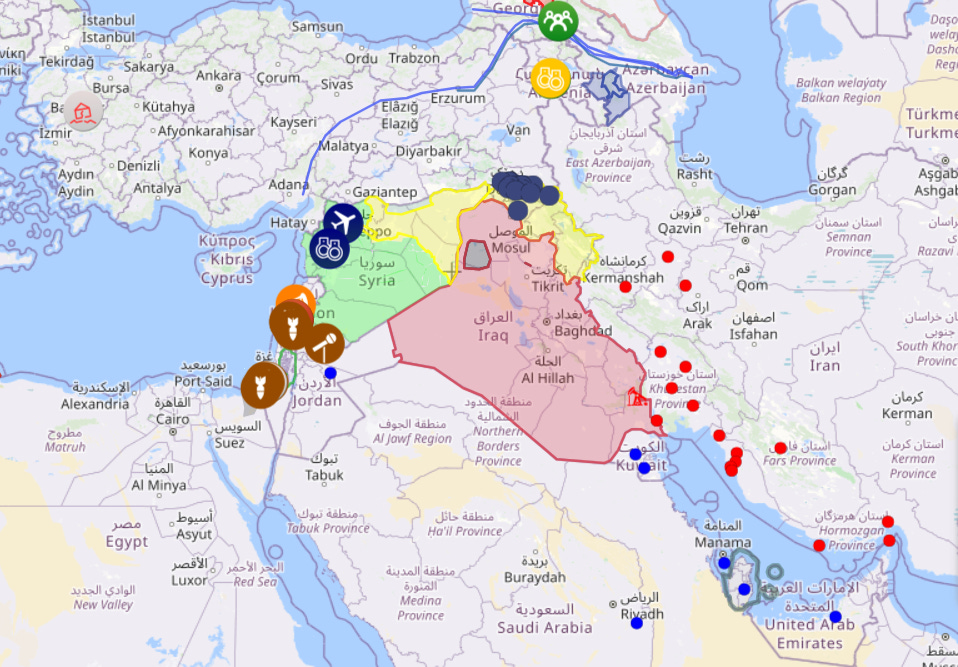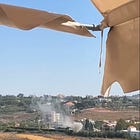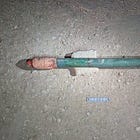The war that solved nothing
So far, 7 October has been a relative success for Hamas, while Israel solved none of its problems. Neither war nor peace are possible, while a Turkish-Israeli prepare for a major conflict.
The Middle East is now in a state comparable to its condition between 1967 and 1973: after the Arabs’ humiliating defeat in 1967, skirmishes continued along the new borders until 1970. The calm after 1970 was deceptive, as it was in preparation for the 6 October 1973 War.
Iran’s nuclear file is unresolved, and it retains ambitions for nuclear weapons
Iran is in internal turmoil. The regime has been humiliated, though it did manage to land some major blows against Israel, most notably against the Haifa refinery. Iran also showed the limits of American air defence systems: 25% of THAAD interceptors were consumed in defending Israel over just 12 days. Iran’s nuclear programme can likely restart at some point. And the succession to Khamenei is likely to favour more nationalist elements that will want to build a nuclear weapon.
Hamas remains the only force that can govern the Gaza Strip
The plan to disarm Hamas through an international force is going nowhere. First, Hamas will not accept disarmament. Second, there is no agreement on which international forces will do the disarming: Israel won’t trust any Muslim force, while Western countries are unwilling to send in troops to die fighting a Hamas insurgency. Moreover, most Muslim countries would not deploy without Turkish backing - the Turks have positioned themselves as a necessary force, and most Muslim countries would not cross them given how it would damage their domestic capability. The last thing Israel wants is Turkish forces in Gaza, in Syria, and probably in the future in Lebanon.
The status quo, with Israel partly occupying or controlling Gaza, while the Palestinian civilian population suffers horrible conditions, is the likely to persist. Meanwhile, Hamas is almost certainly recruiting, rebuilding its capabilities, and preparing for another round: it has no other choice. It will need to resume its insurgency to raise the cost to Israel of remaining in Gaza. Hamas’ concern for Palestinian civilians is minimal. Crucially for Hamas, it thwarted Israel’s ambition to use October 7 as a pretext to expel the Palestinians from Gaza, guaranteeing the resumption of the conflict.
Lebanon’s Hezbollah is rebuilding despite Israeli strikes
Like Hamas, Hezbollah is going nowhere. It is rearming and recovering its capabilities, trying to plug the continuing massive gaps in its counter intelligence operations, and fortifying its remaining positions. Although the loss of Syria is a major problem, it still has access to weapons by sea and likely by air.
The Lebanese government lacks the political will to confront Hezbollah, despite massive American pressure. Hezbollah is unable to rebuild the homes of its supporters that were destroyed during the war. It is facing almost daily strikes by Israel, with some days featuring more than a dozen precision strikes, typically followed by a few days of calm. Its leadership was decimated, including mid-level and senior leaders, but the organisation has survived. It is facing increasing pressure to retaliate to Israeli strikes, but likely will not do so due to its fear of Syrian government intervention into Lebanon.
Israel has full freedom of action over Lebanese airspace, and is able to strike at will. However, this is not enough to disarm Hezbollah. This makes the statement from American Ambassador to Turkey Tom Barrack, who also oversees the Syria and Hezbollah portfolios, absolutely critical: Barrack said that the new Syrian authorities will be a partner against the IRGC and Hezbollah. We assume that that means within Lebanon as well, given Barrack’s previous statements.
Turkey and Israel are on a collision path in Syria
The new Syrian government is signalling its willingness to make a deal with Israel, conditional that Israel withdraw from territories it took after the fall of Assad. For the Israelis, this is a non-starter. They have no interest in a peace agreement with Syria that would legitimise the current government and allow it to rebuild, in partnership with Turkey, as it may one day become a proxy state for Turkey against Israel.
For now, however, with support from Trump, the new Syrian authorities are trying to reassert control over all their territory, but the Druse areas in Suweida, protected by Israel, and the eastern Kurdish-run provinces, protected by the USA on behalf of Israel, remain a problem. Israel, for its part, does not want to see this, as it needs to keep Turkey away from its borders.
We note that the experience of America’s enemies who reconciled with her is less than stellar: Saddam was anti-American, became an American partner against the Islamic Revolution in Iran, then ended up overthrown and hanged. Libya’s Gaddafi reconciled with the West before NATO overthrew him, leading to his death.
Internal politics in Israel preclude peace with the Palestinians
Israel is set to hold elections by October 2026. Only Yair Lapid’s Yesh Atid party, polling at around 22 seats out of 120, supports re-entering peace talks with the Palestinians to eventually establish a Palestinian state. It is unclear if other opposition parties, like Benny Gantz’ National Unity, would support this. The Israeli right still aims to annex the West Bank. Even though the Trump administration is opposed to annexation, the Israeli right can ensure that settlement expansionism continues.
Trump is lobbying the Israeli president to pardon Netanyahu, likely in a bid to get him to stand down. That may pave the way for a coalition tolerant of a Palestinian state, or the idea of it. However, only 27% of Israelis support a Palestinian state. Nearly 10% of Israel’s population lives in the West Bank - which in theory would become a Palestinian state. There is no government that can force large numbers of Jews in the West Bank to relocate.






